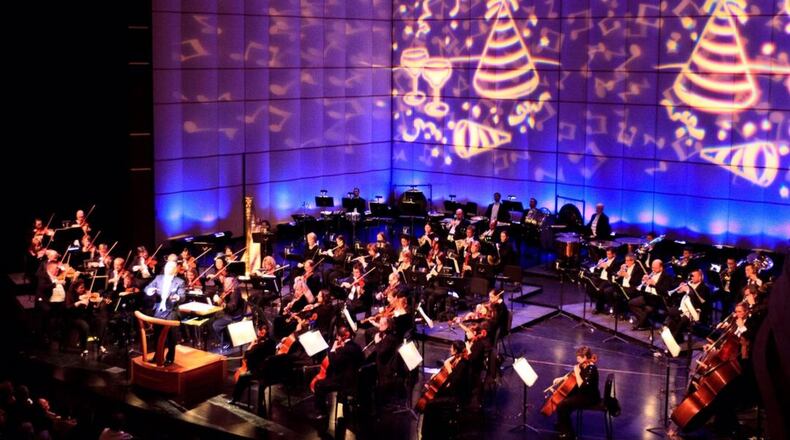Then the coronavirus pandemic hit Ohio, and Gov. Mike DeWine issued an order prohibiting mass gatherings of more than 100 people.
“On March 10, we announced our brand change,” said Sutton, who in late summer of 2018 replaced longtime VTA CEO Ken Neufeld. “We had 250 employees. We have 32 on staff right now.”
Sutton said Dayton Live, one of the largest property owners downtown as the owner of the Benjamin & Marian Schuster Performing Arts Center, the Victoria Theatre, The Loft Theatre at the Metropolitan Arts Center, Arts Garage and the PNC Arts Annex, has been thrown back on its heels.
“It is so hard to estimate (the loss) until we get through all this,” Sutton said. “It is millions of dollars in ticket sales alone. It is so hard to know how long this is going to go.”
>> RELATED: Coronavirus timeline: A look at the orders changing life in Ohio
According to an economic and community impact study prepared by AMS Analytics, $2.1 million in spending from Dayton Live and its audience members has been lost each month of the shutdown order.
Most shows at Dayton Live venues have been canceled or postponed through August.
Credit: VTA
Credit: VTA
It echoes the situation for Broadway in New York and theater organizations closer to home.
Playhouse Square, a theater district in downtown Cleveland, for instance, just announced that all of its 2020 Broadway Series shows, including Disney's "Frozen" and "Hamilton" slated for late summer and early fall, have been postponed, according to Cleveland.com.
“To Kill a Mockingbird” scheduled for November and “Cher” set for February 2021 were also postponed due to the coronavirus.
It’s not just theater organizations like Dayton Live and its resident arts groups — Dayton Ballet, Dayton Philharmonic, Dayton Opera, The Human Race Theatre Company, Dayton Contemporary Dance Company and Muse Machine — that are impacted, Sutton said.
“For all of the arts organizations, it is going to be a similar story,” he said. “We can’t operate at all. It is a really tough and delicate balancing act right now.”
Seven of Dayton’s most prominent arts organizations — Culture Works, the Dayton Art Institute, Dayton Contemporary Dance Company, Dayton Live, the Dayton Performing Arts Alliance, the Contemporary Dayton and the Human Race Theatre Company — recently shared their concerns in a rare joint statement.
>> After the coronavirus, will the show go on Dayton?
The note reads in part:
“Dayton is blessed with an arts scene that offers more diversity, size and scope than most cities its size. There is no question that the arts add significantly to the quality of life here in the Miami Valley. Using the Americans for the Arts economic impact calculator the economic impact is estimated to be $214 million for the region.
At its essence the arts are about bringing people together to experience something beautiful, thought provoking, breathtaking and memorable.
We trust that, with the ingenuity and support of our community, the collective light of the arts won’t be dimmed due to this crisis, but will shine brighter after weathering this storm together.”
Although Dayton Live is planning a fundraising campaign, Sutton said he and leaders of other arts groups know that most people are directing donations to nonprofits that meet immediate needs of people.
>> PHOTOS: Dayton Arcade rebirth continues, as first floor slab completed and windows restored
The organization typically gets 10 percent of its income from donations and 90 percent from things like ticket sales.
“We are relying much more on donations at the time when they are not really happening for the arts,” he said.
Sutton said Dayton Live is a nonprofit tasked with serving the community by charter and rarely nets more than a few hundred thousand dollars in revenue.
The organization’s operating budget is typically $15 million to $20 million with about 25 percent of that being used on employees.
Many of those currently working are assigned to security or ticketing to issue patron refunds, he said.
Very few of the employees who remain are working full time, he said.
“It’s been incredibly painful. We know a lot of people are suffering,” he said. “They don’t know when we will be hiring back in the future or what that will look like.”
Building upkeep is Dayton Live’s biggest expense, Sutton said.
Only the Arts Garage at 121 W. Second St. is operating, but that doesn’t mean the need for repairs has stopped, he said.
Dayton Live’s oldest building, the organization’s former namesake the Victoria Theatre at 138 N. Main St., was opened to the public as the Turner Opera House on New Year’s Day, 1866.
>> Nostalgia night? Local drive-in theater reopens this week
“Our bills don’t go away,” he said, adding that most money earned goes toward venue upkeep.
Dayton Live’s $10 million endowment is mainly used for building repairs.
Sutton said that he can’t predict what the future holds for Dayton Live, but he said Dayton is a community that supports the arts.
The Victoria Theatre is a symbol of the arts community’s resiliency, he said.
“It survived fire, flood, pandemics, wars, social unrest. When you are in this building, it give a perspective on history,” he said of the 1,154-seat, Italianate-style theater. “It gives me hope for the future. People want to be together. We are going to be doing everything we can as an organization to get us through to the other side.”
About the Author



